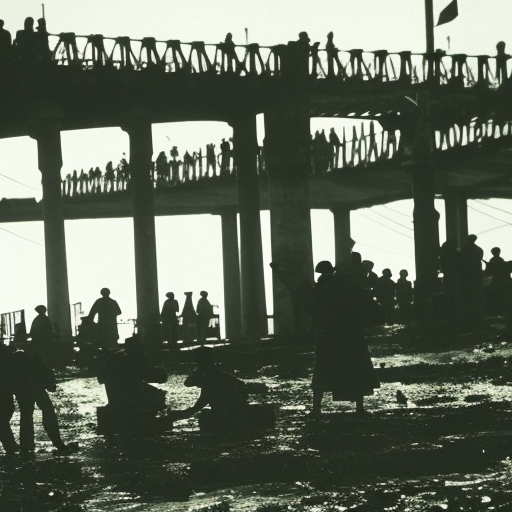Battle of Porto Bello: A Decisive Naval Victory in the Caribbean
The Battle of Porto Bello, fought on November 20, 1739, was a significant naval engagement between the British and Spanish forces during the War of Jenkins’ Ear. The battle took place at the port of Porto Bello, located on the Caribbean coast of present-day Panama. The British, led by Admiral Edward Vernon, launched a successful assault on the heavily fortified Spanish stronghold, resulting in a decisive victory for the British.
Background
The conflict leading up to the Battle of Porto Bello began in 1731 when the Spanish coast guard boarded and seized the British merchant ship Rebecca off the coast of Florida. The captain of the ship, Robert Jenkins, claimed that the Spanish commander had cut off his ear as a form of punishment. This incident, known as the “Jenkins’ Ear Incident,” sparked outrage in Britain and eventually led to the declaration of war against Spain in 1739.
The British Assault
In November 1739, Admiral Edward Vernon set sail from Jamaica with a fleet of ships, determined to capture the Spanish port of Porto Bello. The port was a vital hub for Spanish trade in the region, making it a strategic target for the British. The Spanish had heavily fortified the port, with strong defensive walls and a formidable castle guarding the entrance.
Upon arriving at Porto Bello, Vernon devised a plan to attack the fortifications from both land and sea. The British ships bombarded the fort with cannon fire, while a detachment of marines and sailors landed ashore to assault the walls. Despite facing fierce resistance, the British forces managed to breach the defenses and gain control of the castle.
The Spanish Surrender
With the castle captured, the Spanish garrison at Porto Bello was left in a vulnerable position. Realizing their precarious situation, the Spanish commander, Don Francisco Javier de la Vega, surrendered the port to the British. The British forces took control of the town, capturing a significant amount of treasure and merchandise in the process.
The Battle of Porto Bello was a resounding victory for the British. The capture of the port dealt a severe blow to Spanish trade in the Caribbean and boosted British morale. The news of the victory spread quickly, and Admiral Vernon became a national hero in Britain.
Impact and Significance
The Battle of Porto Bello had far-reaching consequences for both Britain and Spain. The British victory demonstrated their naval supremacy in the region and bolstered their confidence in future military endeavors. It also highlighted the vulnerability of Spanish possessions in the Americas and exposed weaknesses in their defenses.
For Spain, the loss of Porto Bello was a significant setback. The port had been a crucial link in their trade network, and its capture disrupted their economic activities in the region. The defeat also damaged Spanish prestige and raised concerns about the security of their other colonies.
The Battle of Porto Bello marked a turning point in the War of Jenkins’ Ear. The British victory encouraged further aggression against Spanish possessions in the Americas and set the stage for future conflicts between the two powers. It also contributed to the broader geopolitical tensions in Europe, as the war eventually merged with the larger conflict known as the War of Austrian Succession.
In conclusion, the Battle of Porto Bello was a decisive naval victory for the British during the War of Jenkins’ Ear. Admiral Edward Vernon’s successful assault on the heavily fortified Spanish port dealt a severe blow to Spanish trade in the Caribbean and boosted British morale. The battle had significant consequences for both Britain and Spain, shaping the course of future conflicts in the region and beyond.












